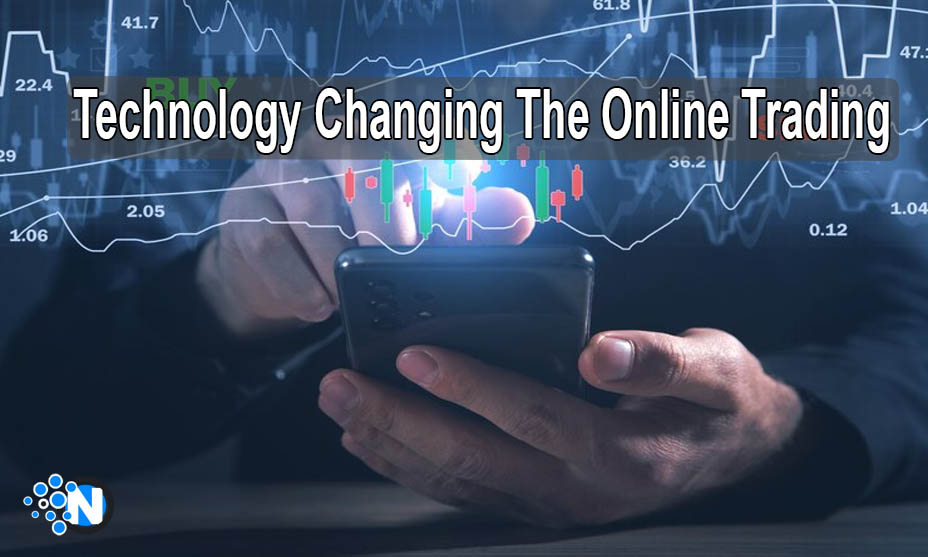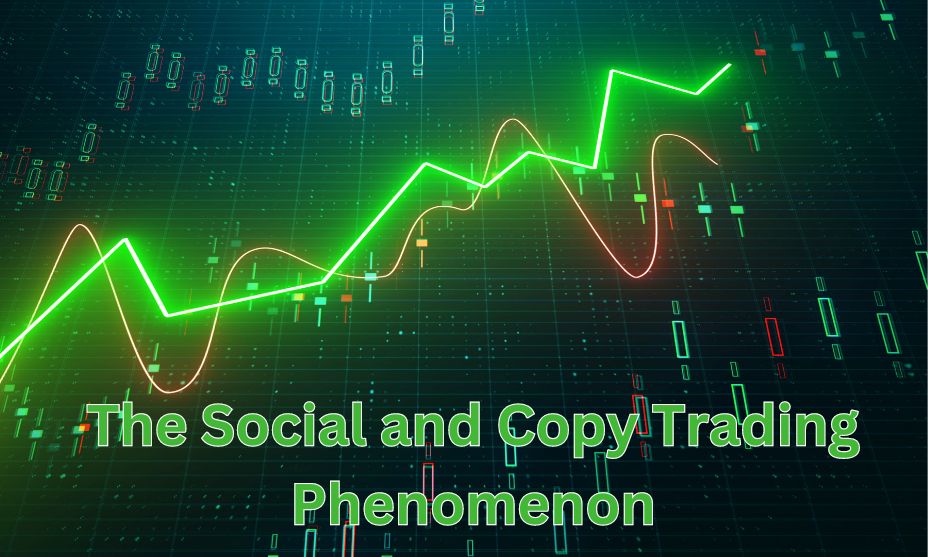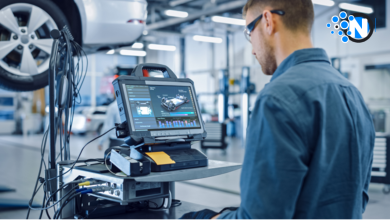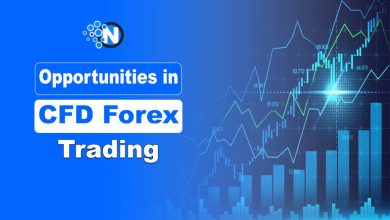How is Technology Changing The Online Trading Landscape?

In recent years, online trading has experienced a remarkable evolution due to the incredible strides made in technology. Gone are the days when traders relied on phone calls to brokers and manual order placements. Today, we find ourselves amidst a dynamic transformation, where online trading platforms have become not only more efficient but also accessible to a broader spectrum of individuals.
This transformation is primarily driven by the immense power of technology, which has seeped into every facet of the trading process. In this piece, we will explore the notable ways in which technology is transforming the online trading environment.
Automation and the Rise of Algorithmic Trading
One of the most noteworthy advancements in online trading is the proliferation of automation and algorithmic trading. Algorithms have reached a level of sophistication where they can execute trades at lightning speeds, far beyond what was conceivable in the past.
High-frequency trading (HFT) utilizes complex algorithms and indicators like COG indicator, for the rapid analysis of market data and the execution of trades within microseconds. While this has increased market liquidity, it has also given rise to apprehensions about market stability and equity.
What’s particularly fascinating is that algorithmic trading isn’t the exclusive realm of large institutional investors anymore. Retail traders can now access algorithmic trading strategies via trading platforms and software. These algorithms are capable of scrutinizing market conditions, pinpointing opportunities, and executing trades without human intervention, thus eliminating the need for constant vigilance.
Real-Time Data and Advanced Analytics at Your Fingertips
Advancements in technology have ushered in an era where traders can effortlessly access real-time market data and employ sophisticated analytics tools. Thanks to the internet and powerful computing devices, market enthusiasts can now track stock prices, news, and economic indicators in real-time. This immediate access to information empowers traders to make well-informed decisions with unparalleled speed.
What’s more, traders can utilize state-of-the-art analytics tools to conduct both technical and fundamental analyses. For instance, charting software empowers traders to delve into historical price data, identifying patterns that may portend future price movements. Additionally, machine learning and artificial intelligence have been harnessed to develop predictive models that offer traders more precise forecasts.
The Rise of Mobile Trading Apps
The omnipresence of smartphones has given birth to a phenomenon—mobile trading apps—that has entirely revolutionized the way we trade. With these apps, traders can buy and sell securities right from their palm, delivering an unprecedented level of convenience and flexibility. Whether you’re at home, sipping coffee at a cafe, or on the move, you can access your trading account and execute trades seamlessly.
Mobile trading apps don’t stop at mere trading; they come bundled with features such as real-time notifications, alerts, and market news updates, ensuring that traders remain perpetually informed and connected to market developments. Furthermore, many brokerages offer demo accounts through their mobile apps, allowing novices to practice trading without risking their hard-earned capital.
Fortified Security Measures
The boom in online trading has brought forth its share of security challenges, such as cyberattacks, data breaches, and identity theft. In response, technology has been instrumental in bolstering security measures to safeguard traders and brokerages alike.
Modern trading platforms come equipped with a range of security features like two-factor authentication (2FA), robust encryption protocols, and biometric authentication methods. Additionally, blockchain technology, the bedrock of cryptocurrencies like Bitcoin, is being explored for its potential to create secure and transparent trading ecosystems.
The Game-Changing Impact of Artificial Intelligence and Machine Learning
Artificial intelligence (AI) and machine learning (ML) are exerting a profound and transformative impact on online trading across various dimensions. AI-driven trading algorithms can process vast datasets, uncovering patterns that transcend human capabilities. Machine learning models possess the capability to adapt and improve autonomously over time, thereby augmenting their precision in forecasting market trends.
AI and ML are also at the forefront of sentiment analysis, where algorithms scrutinize news, social media chatter, and various data sources to gauge market sentiment. Traders can then leverage this information to make more informed decisions, swiftly adapting to shifts in market sentiment.
The Social and Copy Trading Phenomenon

The advent of social trading platforms has been a game-changer. These platforms facilitate interaction between traders, enabling them to share insights and trading ideas and even mimic the trades of seasoned counterparts. This concept has democratized trading, making it possible for novices to learn from and emulate the strategies of successful traders.
Social trading platforms rely on technology to connect traders globally, fostering a vibrant community and facilitating learning from peers. They also offer transparency, allowing traders to assess the historical performance of those they choose to follow and emulate.
Lower Costs and Fees
Technology has substantially lowered the cost of online trading. Gone are the days of high trading commissions and hefty fees, which often deterred small investors from active participation. The emergence of online brokerages with low or zero-commission structures has rendered trading more affordable and accessible.
Furthermore, technology has whittled down bid-ask spreads—the price differential between buying and selling a security—resulting in cost savings for traders. Automated trading also eliminates the need for human brokers, further diminishing trading expenses.
The Global Trading Playground
The internet and technology have transformed the global financial markets into a seamlessly interconnected arena. Traders can now access a plethora of assets, encompassing stocks, bonds, commodities, and currencies, from virtually any corner of the world. This globalization of trading has ushered in fresh opportunities and diversified investment portfolios.
Technology has also eased the process of trading in foreign markets. Forex trading, for example, has become more accessible, with online platforms offering a wide array of currency pairs and tools to help traders navigate the intricate global forex market.
Regulatory Adjustments and Compliance Enhancements
Regulatory bodies worldwide have adapted to the evolving online trading landscape, and technology has been a key enabler in ensuring compliance with regulations like Know Your Customer (KYC) and Anti-Money Laundering (AML) requirements. Modern trading platforms have robust systems in place to verify user identities and monitor transactions for suspicious activity.
Additionally, technology has empowered regulators with the tools to implement more effective market surveillance systems capable of detecting and preventing market manipulation and fraud.
Conclusion
From automation and real-time data access to AI-driven analytics and social trading, technology has become the backbone of modern trading practices. As technology continues to evolve, we can anticipate even more groundbreaking innovations that will further reshape how we trade and invest in financial markets. Traders and investors must remain adaptive and open to these changes to stay competitive in this dynamic environment.




